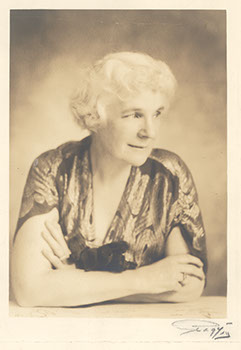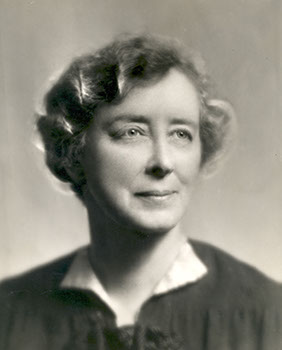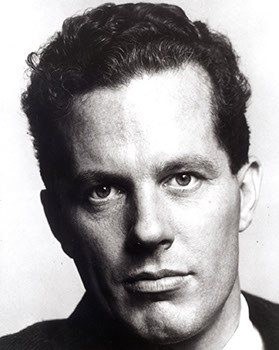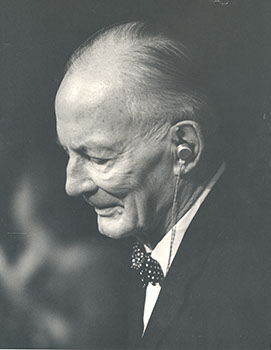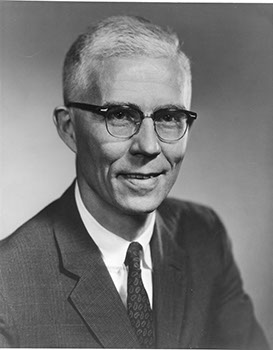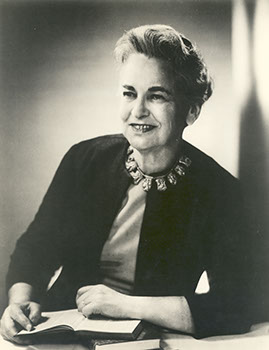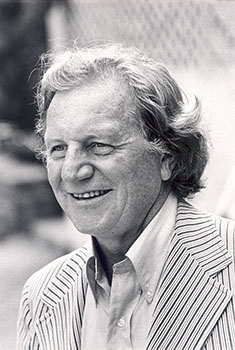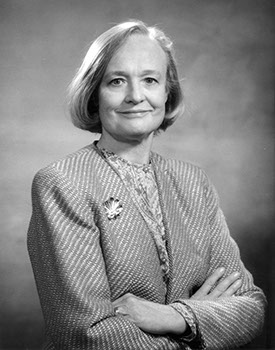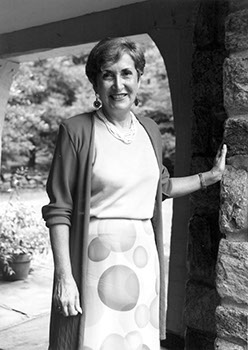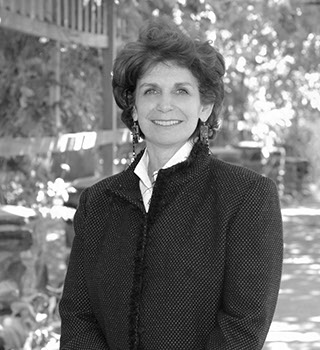Marion Coats (1885-1962) — President, 1927-1929
"Of late, certain facts have led us to hesitate, to question, not so much the worth of a university education as it is, but whether there are not other domains which could be, and which need to be examined, and with which the universities do not as yet deal effectively...We are increasingly aware that rapid as our scientific advance has been...its failure to discover panaceas for out ethical, religious and social difficulties is conspicuous...We are in need of a new technique - not of fact but of value, and it is the obligation of the modern university to devise this technique. Its basis will not be the rational and precise thinking characteristic of growth in science - but an establishment of the rules of validity in the realm of appreciation, of aesthetic judgment, of cultivated taste."
Sarah Lawrence College Catalog, 1927-1928Constance Warren (1880-1971) — President, 1929-1945
"I consider myself to have been the most fortunate person in my profession to have had the opportunity to share in the early development of this College. Its infancy and adolescence have been fraught with many anxieties and growing pains, but always the cooperation of the faculty and the support of the Trustees have made its steady growth possible. I doubt if there is another college in the country where such unanimity of purpose and such helpful give and take have prevailed. May they long continue!"
"Future Plans," Alumnae Magazine, June 1945Harold Taylor (1914-1993) — President, 1945-1959
"We cannot preserve the loyalty and political integrity of our students and teachers by congressional investigation. We can only paralyze their will to think independently and to act politically. It is the proper function of boards of trustees to protect the educational system from political control by the Government. If education is conceived as a means of telling students what to think and making sure that they think it, this is the most un-American activity of all."
Remarks at the Intercollegiate Conference on "Democracy and Communism in the Modern World," February 1953Harrison Tweed (1885-1969) — Acting President, 1959-1960
"As I see the educational process today, it follows closely the philosophy enunciated by founder William Van Duzer Lawrence, put into operation by Constance Warren and brilliantly carried forward by Harold Taylor. We are all very satisfied with it. But to try to stand still is to be sure of sliding back."
Sarah Lawrence Alumnae Magazine, Fall 1959Paul Ward (1911-2005) — President, 1960-1965
"I would say simply that good education requires valuing the dispassionate eye for evidence which is characteristic of science, and valuing equally the imaginative perceptiveness about human involvements which is characteristic of the humanities. These standards should help students see more - and see more clearly - on controversial issues, first in their regular studies and then on outside subjects."
Inaugural Address, May 1961Esther Raushenbush (1898-1980) — President, 1965-1969
"No one who is involved in education these days, and no one who has a child in college these days can fail to see that we are, all over the country, in an educational revolution. It is a revolution created by tumultuous changes in all aspects of life in our time, by the exploding number of students we have undertaken to educate, and by the sense of urgency felt by students and faculty that education must give attention to the social necessities of a world that has, unhappily, become aware of these necessities so late."
Sarah Lawrence Alumnae Magazine, Spring 1969Charles DeCarlo (1921-2004) — President, 1969-1981
"This College, along with its alumnae/i and friends, is a small island, and precious in the best sense of that word. It is one of the many small lands held together by loyalty and remembrance, existing in the practical hurried and troubled currents of our time. It is a small and special place; it brings to mind Gaunt's tribute of life: 'This little world, this land of such dear souls, this dear, dear land.' Being small in a time of largeness it has the opportunity to attain a special kind of greatness, being private in a time of public importance it needs support, but being engaged with the young, it can, if successful, like a powerful dye, pervade a larger world with a richer life."
Inaugural Address, 1969Alice Stone Ilchman (1935-2006) — President, 1981-1998
"At the outset, I was skeptical about the large claims made for the distinctive pedagogy, a bit suspicious of words such as 'donnee,' and allergic to the frequent use of 'unique.' But, I soon learned, here was a student body with a sense of commitment and stylish fun, and abounding in creativity, and a faculty who were open, candid and generous...In my presidency, I did not ever focus on 'fixing up' the educational philosophy or practice. This pedagogy is remarkably supple and, in the main, retains its usefulness across faculty and student generations. The greatest task is protecting and raising the funds to support high-quality teaching in intimate settings."
Sarah Lawrence Magazine, Summer 1998Michele Tolela Myers — President, 1998-2007
"As a small liberal arts college, we go against the cultural grain. In a culture that values growth and bigness, we are small. Embedded in a mass culture, we deliberately focus on individuals. We are intimate and operate in real time in a culture where technology allows distance from the personal, where the virtual feels and looks just as real as real, and where the lines between reality and special effects are increasingly blurred. We offer an education that seeks to form habits of mind, foster critical thinking, hone leadership skills, reward creativity, emphasize the interconnections of knowledge, and prepare for life-long outcomes."
"75 years and counting," Sarah Lawrence Magazine, Spring 2004Karen Lawrence — President, 2007-2017
"One of the impressive aspects of Sarah Lawrence College tradition is that the individuality so prized here--the emphasis on developing individual capacities that was so important to John Dewey, whose educational philosophy was part of our origin--is allied with a commitment to improving our society and to fostering social justice. The life of the intellect must be celebrated and nurtured, and space provided for dreaming and thinking. But along with it, what I have also seen at Sarah Lawrence is a commitment to contributing to society, to solving problems, to being involved. The ethos here is one of activism. Students take hold of their education, and this extends to outreach and service. At the same time, it is crucial that we provide a bigger tent for students from different backgrounds, with different ideas. Diversity is not a quota system. It is a means of enriching the intellectual and social environment for all and a means of ensuring that people don't think alike, look alike, have the same assumptions, prefer the same things."
Letter to the Sarah Lawrence Community, August 2007